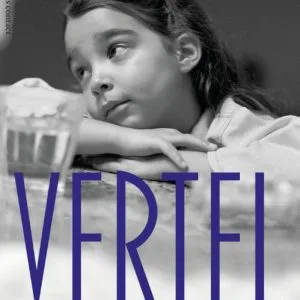By Liset Hamming, guest writer Story Terrace
Storytelling: On the Power of Stories
‘When the first men started telling stories to one another, so came an end to Chaos’. Imme Dros, Greek Myths, from Vertel, over de kracht van verhalen (Storytelling: On the Power of Stories) by Christien Brinkgreve, 2014.
Christien Brinkgreve, until recently a professor of social sciences at Utrecht University, argues in her latest book Vertel, over de kracht van verhalen for the importance of stories. ‘It’s through stories that we learn how to empathise with others, and in this way the real world becomes bigger and more understandable to us.’
Life stories
Picture by Harold PereiraThe major part of her work as a sociologist arose from the interest she took in big and small social and psychological disturbances. She tried to find one answer, one truth. At university, they quickly put an end to this way of thinking. ‘There was no single truth, no single story; that much became clear to me very quickly.’ The broad scope of sociology gave the illusion of order and overview, but further investigation asked for another way of looking back at events. ‘A method of review that doesn’t smooth out variations with averages, but leaves room for people’s ambiguity.’ That method of review is found in the telling and sharing of our life stories.
‘I’ve got a story, too’
In 2006, she wrote down her own mother’s life story. ‘My father had recently passed away. A year after his death, my mother said to me: “I’ve got a story, too.” My brother and two little sisters trusted me to write her story. ‘Now it’s your turn,’ I said to her. ‘I will write down what you say.’ The main difficulty was the difference between how she and her mother evaluated events. But she’s happy with the result. ‘It’s one of the most beautiful things I’ve done.’
Proud
The life story of her mother has become a conversation between mother and daughter as well as a portrait of a creative, intelligent woman. ‘The different phases that she, up to that point, had thought of as more or less separate from each other, were connected in narrating them. In noting her current attitudes and her resilience to adversity, she recognised how she had been as a child. On top of that, it’s lovely to see how family and friends have reacted. They knew my father, but weren’t very well acquainted with my mother. After reading her memoirs, they would come back with their own memories and my mother would encourage them to write down their stories. That position as a spider in a web of stories was much to her liking.’
Connecting
Our own story gives us a sense of identity (this is who I am) and orientation, Christien writes in Vertel. A story is a way to tackle confusion. ‘The urge to tell stories traditionally arises from the desire to create a certain unity in life,’ she explains. Seven years ago she started teaching summer courses in autobiographical writing. ‘It isn’t therapy, as I emphasise at the beginning of the course. But it does have the same effect: a healing effect, a connecting effect, and connecting things up can be a way of healing in itself.’
The pond you grew up in
In Vertel, Christien writes about the power of ‘small’, everyday stories, as distinct  from the power of the ‘big’ stories that she encountered in her work as a sociologist. Small stories like that of her mother’s. ‘Through my mother’s story, we not only got to know our mother better; we also found out more about how our own lives began. You learn more about the pond you grew up in, the hidden messages that you are brought up with. And through this, your family is shown to be far more important than you thought when you broke loose from it. I now think: you did a very good job, Mother, with so little money and so little space and four children.’ Your parents’ story brings out a certain continuity. ‘It’s important to learn about this, so you can decide where you want to turn off in other directions and in what ways you want to uphold the continuity.’
from the power of the ‘big’ stories that she encountered in her work as a sociologist. Small stories like that of her mother’s. ‘Through my mother’s story, we not only got to know our mother better; we also found out more about how our own lives began. You learn more about the pond you grew up in, the hidden messages that you are brought up with. And through this, your family is shown to be far more important than you thought when you broke loose from it. I now think: you did a very good job, Mother, with so little money and so little space and four children.’ Your parents’ story brings out a certain continuity. ‘It’s important to learn about this, so you can decide where you want to turn off in other directions and in what ways you want to uphold the continuity.’
A beautiful present
By writing down your parents’ story, you give your parents time to reflect on their own lives. ‘Attention as a present, instead of a trip to the Bahamas. When children take a true interest in their parents, seeing them as people with their own stories, to me that’s a beautiful gift.’ And what if you find it hard to write it down yourself? ‘In that case, I would recommend you to outsource it. Like when in olden times you would ask a painter to paint a family portrait.’
You can order Vertel, over de kracht van verhalen (Storytelling: on the power of stories), ed. by Christien Brinkgreve, and published by Atlas Contact.
For more information on having your stories written down, send an e-mail to info@ or get in touch via our contact form.
_______
 About the author: Liset Hamming is, apart from a professional writer for Story Terrace, a freelance text writer and journalist.
About the author: Liset Hamming is, apart from a professional writer for Story Terrace, a freelance text writer and journalist.
About us: Story Terrace helps customers to capture personal stories in beautiful books alongside a professional writer. Our writers have a range of backgrounds and interests, sharing one passion: Portraying individuals through carefully crafted anecdotes and lively stories.


